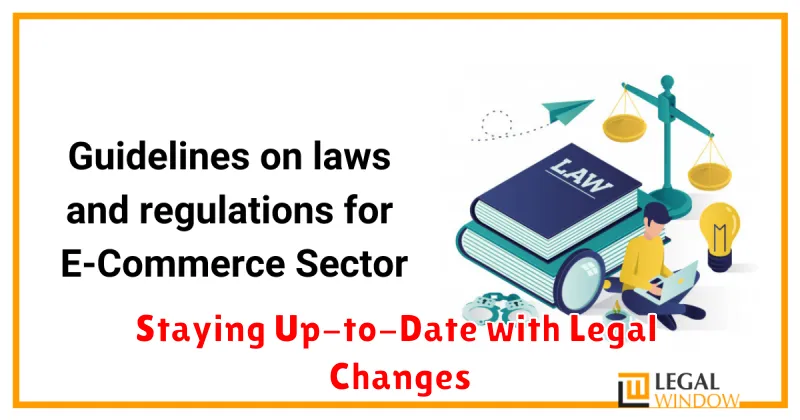Launching an online store opens exciting opportunities in today’s digital marketplace. However, navigating the complex world of e-commerce law can be daunting. Understanding and complying with essential legal requirements is crucial for building a successful and sustainable online business. This article provides a comprehensive guide to the legal landscape for online stores, ensuring you are well-equipped to handle the legal challenges and operate your business with confidence and compliance. From data privacy regulations like GDPR and CCPA to consumer protection laws, we’ll cover the key areas you need to address to protect both your business and your customers.
Ignoring these legal requirements can lead to severe consequences, including hefty fines, legal battles, and reputational damage. Whether you’re selling physical products, digital goods, or services, adhering to the correct legal framework is non-negotiable. This guide will help you understand the core principles of e-commerce law, including online contracts, intellectual property rights, payment processing regulations, and shipping and returns policies. By gaining a firm grasp of these essential elements, you can mitigate risks, establish trust with your customers, and build a thriving online store.
Understanding E-Commerce Laws and Regulations
Operating an online store requires adherence to various e-commerce laws and regulations. These laws are designed to protect both businesses and consumers, ensuring fair practices and secure transactions. Understanding these legal requirements is crucial for building a successful and legally compliant online business.
Key areas of e-commerce law often include consumer protection, data privacy, online advertising, and intellectual property. Regulations vary by jurisdiction and are subject to change, so staying informed is essential. Businesses must be aware of the specific laws governing their target markets.
Ignorance of these regulations is not a defense. Non-compliance can lead to penalties, fines, legal action, and damage to reputation. Consulting with a legal professional specializing in e-commerce law is strongly recommended to ensure full compliance.
Complying with Data Privacy and Security

Data privacy and security are paramount for online stores. E-commerce businesses handle vast amounts of sensitive customer information, making robust data protection measures essential. Failing to comply with relevant regulations can lead to significant legal and financial repercussions.
Key regulations, such as GDPR, CCPA, or other applicable laws in your region, dictate how you collect, store, process, and share customer data. Transparency is crucial. Clearly inform customers what data you collect, why, and how you use it. Provide accessible privacy policies that outline these practices.
Data security measures are equally critical. Implement strong security protocols to protect customer data from unauthorized access, use, disclosure, disruption, modification, or destruction. This includes measures like data encryption, secure storage solutions, regular security assessments, and robust incident response plans. Stay informed about evolving threats and adapt your security measures accordingly.
Displaying Clear Terms and Conditions
Clearly presented and readily accessible Terms and Conditions are crucial for any online store. These terms establish the rules of engagement between the business and its customers, covering aspects like product warranties, return policies, and dispute resolution mechanisms.
Ensure your Terms and Conditions are written in plain language, avoiding complex legal jargon that the average customer might not understand. Present them in a conspicuous location on your website, typically accessible through a footer link. Consider implementing a mechanism requiring customers to acknowledge the Terms and Conditions before completing a purchase.
Address key areas within your Terms and Conditions such as: product descriptions and warranties, payment processes, shipping information, return and refund policies, methods for contacting customer support, and a clear outline of your intellectual property rights. Regularly review and update your Terms and Conditions to reflect changes in your business practices and applicable laws.
Protecting Customer Data and Payment Information
Safeguarding customer data and payment information is paramount for online stores. PCI DSS (Payment Card Industry Data Security Standard) compliance is crucial for any business that handles credit card transactions. This standard outlines specific requirements for securing cardholder data to prevent fraud and data breaches.
Encryption is essential for protecting data transmitted between the customer’s browser and your server. Employing SSL/TLS certificates ensures secure communication channels, preventing unauthorized access to sensitive information.
Securely storing customer data is equally critical. Implement robust security measures such as data masking, access control restrictions, and regular security audits to protect stored data from unauthorized access and potential breaches. Choose reputable and secure payment gateways that adhere to industry best practices for processing transactions.
Transparency with customers about how their data is collected, used, and protected is essential for building trust. Clearly articulate your data privacy policies and ensure they align with applicable regulations. Regularly review and update your security practices to stay ahead of evolving threats and maintain a secure environment for customer data.
Implementing Secure Checkout Processes
A secure checkout process is crucial for protecting customer data and fostering trust. PCI DSS (Payment Card Industry Data Security Standard) compliance is non-negotiable. This standard mandates specific security controls for handling cardholder data, encompassing encryption, regular vulnerability scans, and strong access control measures.
Offering multiple secure payment gateways provides flexibility and convenience for customers. SSL certificates (HTTPS) are mandatory to encrypt data transmitted during checkout. This ensures data confidentiality and protects against eavesdropping.
Two-factor authentication (2FA) adds an extra layer of security, reducing the risk of unauthorized access. Consider implementing 2FA for both customers and administrators accessing sensitive payment information.
Regular security audits and penetration testing are vital for identifying vulnerabilities and strengthening your checkout process. Address identified issues promptly to maintain a robust security posture.
Ensuring Accessibility for All Users
Online stores must prioritize accessibility to ensure equal access for individuals with disabilities. This is not only an ethical consideration but also a legal requirement in many jurisdictions. WCAG (Web Content Accessibility Guidelines) provide a comprehensive framework for making web content more accessible.
Key aspects of web accessibility include:
- Alternative text for images: Providing descriptive text for images allows screen readers to convey the content to visually impaired users.
- Keyboard navigation: Ensuring all functionality is accessible using the keyboard alone benefits users who cannot use a mouse.
- Captions and transcripts for multimedia: Making audio and video content accessible to users with hearing impairments is crucial.
- Sufficient color contrast: Adequate contrast between text and background colors ensures readability for users with low vision.
By adhering to accessibility guidelines, online businesses can create a more inclusive online environment and avoid potential legal issues.
Managing Sales Taxes and Other Financial Obligations
Sales tax is a crucial aspect of online businesses. Understanding and complying with sales tax laws is vital for avoiding legal issues and penalties. Determining where you have a sales tax nexus – a significant presence that requires you to collect sales tax – is the first step. This nexus can be established through physical presence (like an office or warehouse) or economic activity exceeding certain thresholds within a state.
Beyond sales tax, online stores must also manage other financial obligations. Accurate record-keeping is paramount. Maintain detailed records of all transactions, including sales, expenses, and inventory. This documentation is essential for filing taxes, managing cash flow, and demonstrating compliance during audits.
Payment processing also involves legal and financial responsibilities. Choose reputable payment gateways and ensure compliance with data security standards like PCI DSS to protect customer information. Additionally, understand and adhere to regulations related to refunds and chargebacks.
Staying Up-to-Date with Legal Changes

The digital legal landscape is constantly evolving. Regularly reviewing and updating your online store’s practices is crucial for maintaining compliance. Failing to stay informed can lead to penalties and legal issues.
Subscribe to legal updates from reputable sources. This could include government agencies, legal professionals specializing in e-commerce, or industry associations. These resources often provide timely information on new regulations and changes to existing laws.
Implement a system for tracking legal changes. This could involve creating a calendar for review periods or designating a team member to monitor updates. Documenting these changes ensures a clear record of your efforts to maintain compliance.
Consult with legal counsel periodically. A lawyer specializing in internet law can provide tailored guidance based on your specific business model and jurisdiction. They can also help you navigate complex legal issues and ensure your practices remain compliant.

